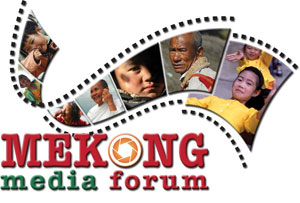CHIANG MAI, Dec 11 – Coping with a wide variety of limitations has become a way of life for Mekong journalists, who have developed ways of coping with them in a host of pragmatic ways.
These limitations include challenges from government and business institutions running media entities, and commercialisation.
For La Chan Tha, chief of Bayon Radio and Television in Cambodia and a documentary filmmaker, communication challenges are common in his country. The main challenge lies in getting sources to interview, especially when these are government officials, he told a parallel session session on ‘Mekong Media: Spaces, Challenges and Opportunities’ at the Mekong Media Forum.
Unlike journalists in other countries who can just pick up the phone and get the desired source on the other line for impromptu interviews, journalists as well as documentary filmmakers in Cambodia have to go through some protocol before they are granted an appointment.
“First we need to get official permits in order to get the cooperation of local authorities,” said La Chan Tha. “We also need to provide documents that clearly introduce the institution we’re representing. We also have to clearly address the objectives of the [film] productions and what benefit the said institution will get from it.”
La Chan, who has been with the industry for the past 14 years, added that phone interviews are not allowed. Bases for rejection of interview requests include not being able to establish clearly the purpose of the interview or if the publication or company represented by the requesting party is not popular enough. At times, young journalists are not granted interviews because they are not “well known” enough.
He also stressed that for a production to be successful, having teamwork is essential apart from having a good topic and good technical equipment.
“We are not a perfect team but we do our best,” he said.
For its part, Thai media are driven by a variety of factors, including people, budget and government, according to media researcher Prof Rachanee Vongsumitr. “People are the main market for media products. Media owners say that they are only trying to demand, say, more soap operas on television,” she said.
While there are consumer advocates campaigning against too much commercialism in the Thai media, their message generally falls on deaf ears. “The Thai people’s nature is passive; they don’t complain much and will just change channels [if they don't like what they see],” said Rachanee.
The power of advertising — and money — is also having significant impact on media content.
“Budget issues are hard to deal with. Sponsorships affect the message because a large part of the [media's] budget comes from advertising,” she said, referring to the influence advertisers have, to some extent, over media content.
China’s case is different. Its so-called “external media,” consisting of mainly English-language media, are made available to international audiences as part of the government’s efforts to reach out to the rest of the world. “External media carry China’s message to the world via a number of media institutions,” said ‘China Daily’ senior journalist Mu Qian.
Apart from ‘China Daily’, other media publications and networks considered part of external media are CCTV9, ‘Global Times’, ‘News China’, ‘Beijing Review’, CITV, and china.org.cn, to name a few.
“Being the national English-language daily in China, we’re always referred to by the international media as ‘the official government paper’,” he added. But, contrary to what the international media believe, Mu Qian said that being part of this “campaign” does not necessarily mean that they are ‘government mouthpieces’.
“While it is true that ‘China Daily’ contains information from the government and that all media in China are controlled by the government, not everyone in the paper identifies with this ‘mouthpiece’ role,” said Mu Qian.
He added that many of those living outside China do not understand that the relationship between the government and the Chinese media is “not so direct” and is “subtle and complicated”.
But yes, he continued, they do report about some sensitive issues, too. As examples, he cited coverage of the trial for subversion of writer Tan Zuoren, who had been exposing corruption in low-cost schoolbuildings that collapsed during the Sichuan earthquake of 2008, reportage on the Internet software aimed at pornographic sites (later rescinded), and a story by ‘China Daily’ on prayers in Urumqi soon after the July 2009 riots there.
For Rachanee, however, balancing reality and idealism is one of the biggest constraints on the media in the region. (END/IPSAP/TV/LLC/TBB/JS/09) (LLCorporal)







